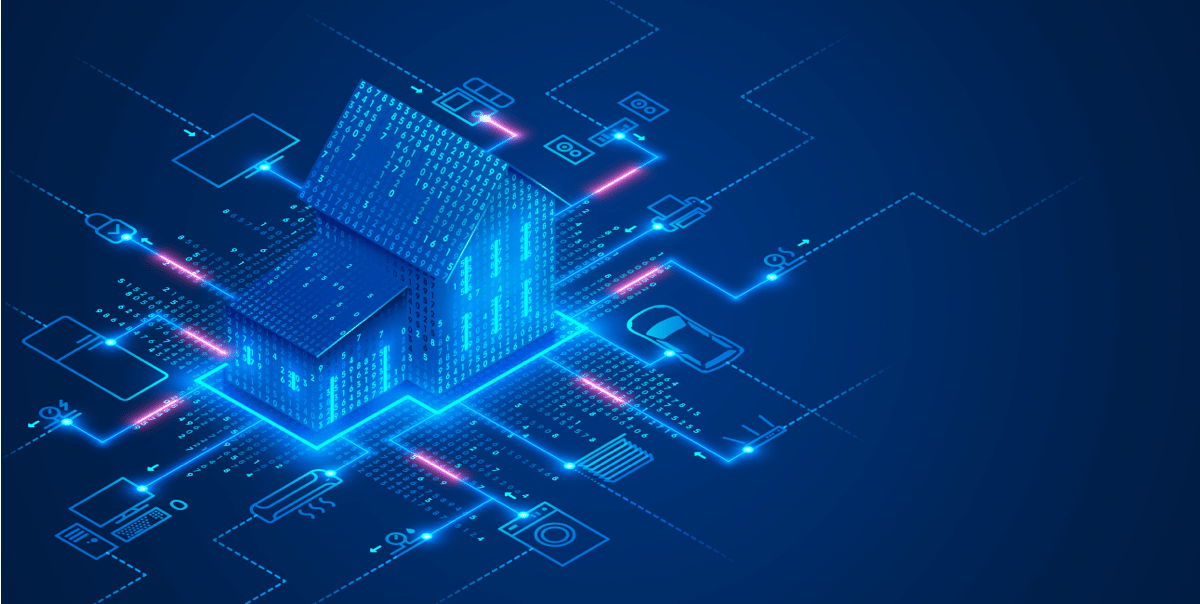Smart Home Trends — An Opportunity for Electrical Businesses

4 Min. Read
Homeowners are embracing the new paradigm of smart, automated homes. It’s the electrical planner’s job to ensure that houses are connected, which means taking care of much more than what the job has traditionally entailed.
Read on to learn what it takes to service the modern homeowner’s needs.
The growing needs of homeowners
The global pandemic forced millions of people back into their homes, and we all had to adjust to a new way of life. The pandemic caused a global seismic rift in the economy and many businesses suffered. But it also spawned other business ideas and created jobs in different sectors. As people sequestered themselves inside, they relied on services to bring them food, medicine, and care.
Service providers such as Uber, DoorDash and cable/internet providers are thriving as the work-from-home phenomenon has taken hold and will likely not relent anytime soon.
Further, the home has always been our sanctuary. But now, it also serves as our office, classroom, gym and entertainment area. As we spend more and more time within the confines of our homes, we naturally want to be as comfortable and efficient as possible. This means making various improvements to the house — like turning a spare bedroom into a new home office, and the basement into a fitness center. Homeowners are spending their hard-earned cash to improve the places where they spend most of their time. Homeowners need to add more electrical circuits to support new equipment in their households.
This presents a great opportunity for electrical companies to expand their business. Home automation is a booming industry and is revolutionizing the way we live in and interact with our homes. Smart homes keep us connected to our sanctuaries and provide us with relevant data that is useful.
Statistics in home automation
The IOT (Internet of Things)trend continues to dominate the home automation sector, and new products are springing up daily. Here are a few hot statistics on home automation.
- There are more than 175 million smart homes in the world. A smart home is classified as a modern home that is connected with devices and/or appliances that can be controlled remotely via the internet or apps.
- Smart security systems continue to grow. Security systems that can be controlled and viewed from mobile devices continue to gobble up market share. It is predicted that by 2023 they will comprise nearly 25% of the smart home market.
- Smart thermostats still dominate. The smart thermostat industry is projected to top a value of $12 billion in the next few years.
Elaborate architectures
Supporting extra computer equipment, smart devices, smart appliances and networks requires upgrades to the home infrastructure. Here are some concepts and installations that have taken off.
- Smart panels. These electrical panels are integrated into the internet provider’s hardware and replace standard electrical panels that are static. Smart panels connect to the many smart devices in your home and constantly monitor and regulate them by transmitting data.
- Battery storage. As homes are fitted with solar panels, battery banks are added to homes to capture and store energy generated from the sun.
- Electrical vehicle charger stations. The proliferation of electric vehicles has created the need and demand for at-home electrical vehicle charging stations. An electrical planner and qualified electricians must complete these installations.
- Advances in lighting. Smart lighting in homes provides a convenient and efficient way to monitor and control lighting. It requires sensors and new switches to be installed, giving the homeowner complete control over lighting remotely.
- Numerous distributed devices. Homes have become littered with devices that sometimes act independently. Electrical contractors can connect them to a seamless central hub.
- Sound systems, security and home automation. As we discussed earlier, home security, sound systems and automation are popular. The demand for these devices and the need for service providers to install them is only growing.
Electrical contractors have a unique opportunity to expand their business and tap into the numerous opportunities in the new marketplace.
The need for one-stop contracting- System Integrators Needed
Homeowners are looking for service providers to help them install, connect and maintain all the devices and appliances that make up their smart homes. This requires skilled electricians who are trained and adept in different areas. This cross-skill is a major new requirement because you might be expected to help with integrated HVAC units, sanitation automation, charging stations, and lighting and electrical panel upgrades all in the same project.
Position your business to provide solutions and support the increasing number of smart homeowners. Here are a few tips to succeed:
- Start small. Pick out an emerging technology niche, such as EV charging station installations, and grow from there.
- Hire for diverse skills. Your electricians need to not only have traditional skills, but also understand the basics of computer programming, device automation and so on. Diversify your workforce and look into training as much as possible.
- Don’t go at it alone. To become a leader, you have to join the community of other pioneers. Companies such as Qmerit even offer training and help for forward-facing contractors.
Get plugged in
Qmerit provides a robust program and network for electrical businesses to plug into. They offer training and coaching to hone the skills you need to support customers. Starting with @Home EV charging stations, electricians will be given access to a large market base of qualified consumers. This will lead to more business, including maintenance agreements and other services within the smart home sphere. Get your team engaged and up to speed so they can tap into the numerous opportunities Qmerit can expose them to. Call today for more info.
